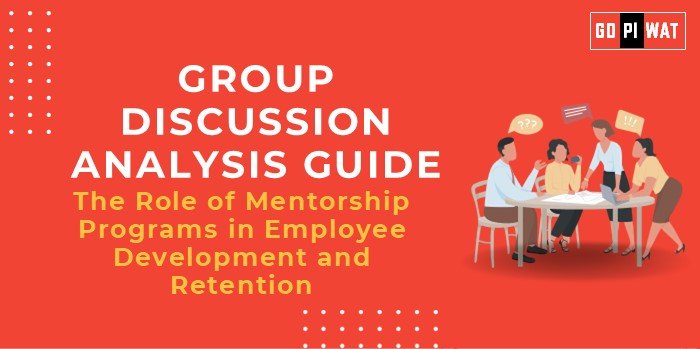📋 The Role of Mentorship Programs in Employee Development and Retention
🌐 Introduction to the Role of Mentorship Programs
- Opening Context: Globally, mentorship programs are recognized as a cornerstone for talent development, providing employees with personalized guidance, skill enhancement, and career navigation. Their significance in fostering employee satisfaction and loyalty is especially relevant as companies face high attrition rates.
- Topic Background: Mentorship has roots in ancient apprenticeship systems and has evolved into structured programs across industries. Recent surveys highlight that companies with strong mentoring cultures report 20% higher employee retention rates.
📊 Quick Facts and Key Statistics
- Improved Retention: 84% of employees with mentors stay longer in their roles.
- Skill Development Impact: 67% of mentees reported improved skills, enhancing workplace performance.
- Managerial Potential: Companies with mentoring programs identify high-potential employees 25% faster.
- Adoption Rates: 70% of Fortune 500 companies offer formal mentorship programs.
👥 Stakeholders and Their Roles
- Human Resources (HR): Design and implement mentorship frameworks, evaluate outcomes.
- Employees: Engage actively as mentees and mentors for mutual growth.
- Leadership: Champion mentorship initiatives and align them with business goals.
- Industry Experts: Provide external mentorship and insights for specialized fields.
🏆 Achievements and Challenges
Achievements:
- Boosted Productivity: A mentoring program at Google improved team productivity by 30%.
- Retention Benefits: LinkedIn reported a 40% reduction in employee turnover after launching mentorship initiatives.
- Diversity Growth: Mentorship programs improve diversity; women and minorities are 50% more likely to move into leadership roles.
Challenges:
- Scalability: Ensuring all employees have access to quality mentors.
- Program Sustainability: Maintaining momentum and participation over time.
🌍 Global Comparisons:
- Germany: Apprenticeship programs align with mentorship, fostering skilled talent pipelines.
- Singapore: Formalized government-supported mentoring improves SME workforce competencies.
Case Study: Amazon’s Career Choice Program enables employees to gain mentorship for upward mobility, reducing attrition by 15%.
📖 Structured Arguments for Discussion
- Supporting Stance: “Mentorship programs drive employee development by providing tailored career guidance, increasing retention rates by up to 40%.”
- Opposing Stance: “Many mentorship programs fail to deliver measurable results due to lack of structure and poor mentor-mentee matches.”
- Balanced Perspective: “While mentorship programs have proven benefits, their success depends on thoughtful implementation and consistent monitoring.”
💡 Effective Discussion Approaches
- Opening Approaches:
- Start with data: “84% of employees with mentors report higher retention.”
- Pose a thought-provoking question: “How can companies ensure mentorship programs remain impactful in a hybrid work environment?”
- Counter-Argument Handling:
- Acknowledge challenges: “True, some programs lack structure, but adopting AI-based matching can improve outcomes.”
- Offer solutions: “Scalability issues can be addressed through group mentoring and online platforms.”
🔍 Strategic Analysis of Strengths and Weaknesses
- Strengths: Improved retention, enhanced diversity, faster leadership development.
- Weaknesses: Requires significant investment, uneven access in large organizations.
- Opportunities: Expansion via technology, increased cross-industry collaborations.
- Threats: Risk of mentor burnout, lack of tangible ROI metrics.
📚 Connecting with B-School Applications
- Real-World Applications: Explore mentorship’s role in succession planning, talent management strategies, and workforce diversity.
- Sample Interview Questions:
- “How would you structure a mentorship program to align with organizational goals?”
- “What metrics should be used to measure the success of mentorship programs?”
- Insights for Students: Leverage mentorship for networking and career guidance during internships and early roles.


